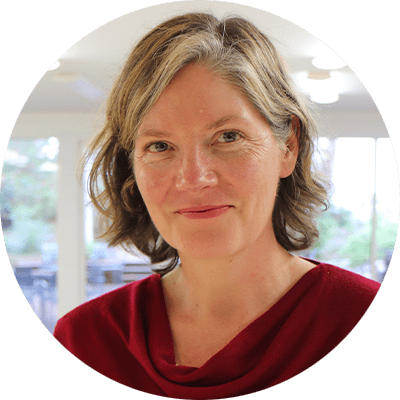Almost half a million Australians are living with the effects of stroke, a health condition that attacks the brain and changes lives in an instant.
Stroke can happen to anyone of any age. Not only does it affect the survivor with damage to areas of the brain that can affect how they talk, swallow, see, feel, touch and move, it can also upend the lives of those around them.
Flinders researcher and physiotherapist Dr Elizabeth Lynch is investigating how to better support and upskill people who are transitioning to the role of an informal carer of someone who has suffered a stroke.
“Sometimes the stroke patient fully recovers but in others, the shift in the relationship between them and their loved one can be really confronting,” she says.
“Some couples go from being an equal partnership to only one person becoming the breadwinner and the other on a disability pension.
“Those sort of changes in the relationship can be really tough and tricky to navigate for both people.”
Alongside her team at the Flinders Caring Futures Institute, Dr Lynch is working with stroke survivors, support people and health professionals to develop new resources to help people cope with the often overwhelming and emotional load of caring for a stroke survivor.
The project is also aiming to improve systems within hospitals to better provide information to patients and their families.
Informal carers of stroke survivors can be parents, husbands, wives, partners, friends or family members. In an instant they can be forced to make decisions for their loved one around medical procedures, returning to work, organising finances, booking rehabilitation services and appointments or, in some cases, organising aged care services.
In a project funded by national charity organisation Stroke Foundation, Dr Lynch has developed a suite of resources including an online training module and videos of carers’ stories that share an insight into other people’s experiences and what to expect with their own.
The resources are currently being trialled at two hospitals, one in Adelaide and another in Perth, providing carers with access to correct and timely information.
Dr Lynch’s research also involves working with healthcare teams and hospital staff to improve how information is provided to patients and their families.
“It's about helping carers identify their own learning needs and advocate for themselves to get the information they need.”
“In preparation for the videos, we did many interviews with carers and asked them what they would have liked to have known in the early days and weeks after stroke and what would they have done differently?” she says.
“Generally, carers don’t know what questions to ask, many people just wait to be told what to do and they trust the health professionals to tell them what they need to know.
“In talking to health professionals, we know that they do provide information to patients and carers, but often this is provided just once, and no-one checks if this information has been understood or remembered. Patients and carers in hospital are under a lot of stress, and they often don’t process information accurately or they can completely forget whole conversations.
“The online module and videos are there so that when someone comes to the ward with their loved one who has suffered a stroke, they have some tips on what sort of things to look out for, and tips on how to cope that they can look over as often as they like. It’s about helping carers identify their own learning needs and advocate for themselves to get the information they need.”
While strokes are often thought of as a health episode affecting older people, they in fact do strike at any age, although high blood pressure, being overweight, being inactive, smoking, high cholesterol, diabetes, and high intake of alcohol put people at greater risk.
“One in five Australians will have a stroke at some point in their life and one in three strokes occur in people under the age of 65, so these are people of working age and that is a big deal,” Dr Lynch says.
“It’s becoming more common for young people to have strokes, but we don’t have the services to meet their specific needs around returning to work, driving and managing a family. These needs are different to the needs of older people who may be nearing retirement or past working age and have different responsibilities in life.
“While we can’t change the turmoil that comes when a loved one has a stroke, we are striving to support carers to get all the information they need so that they and their loved one can live their best life possible.”
“While we can’t change the turmoil that comes when a loved one has a stroke, we are striving to support carers to get all the information they need so that they and their loved one can live their best life possible.”
Download your free copy of Fearless Research
![]()
Sturt Rd, Bedford Park
South Australia 5042
South Australia | Northern Territory
Global | Online
CRICOS Provider: 00114A TEQSA Provider ID: PRV12097 TEQSA category: Australian University










